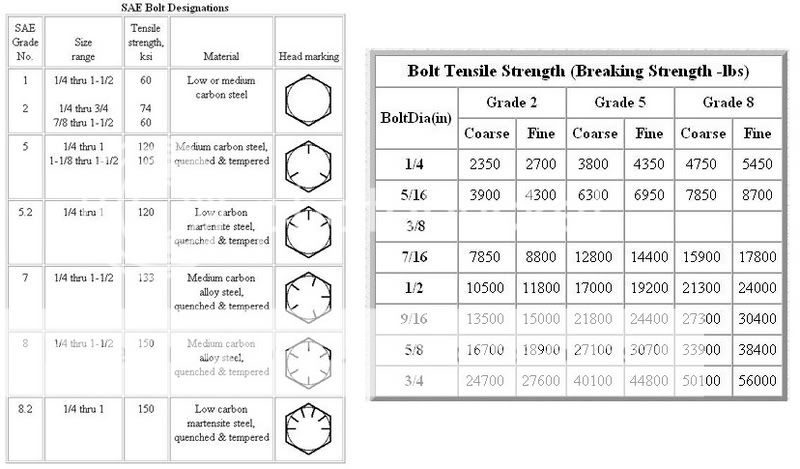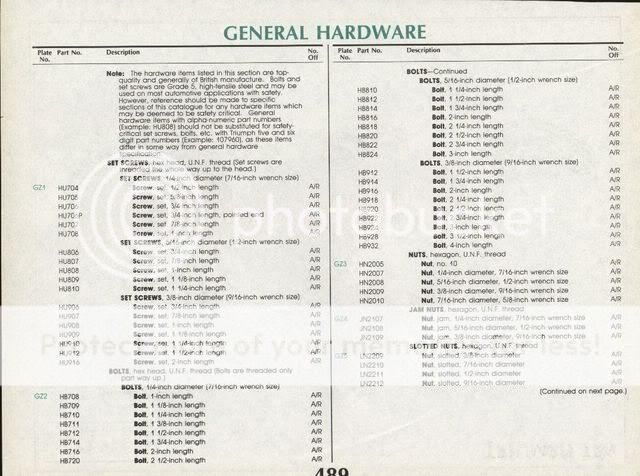T
Tinster
Guest
Guest
Offline
I am starting this thread for all
the guys like me who have almost no
basic automotive repair experience.
1. It took me a while before I learned there
should be NO metric nuts and bolts in my car.
2. So I started taking out all the new metric fasteners
and replacing them with stainless steel American/Brit
nut and bolts and lock washers.
3. Found out THAT was wrong too. SS too weak for most
things.
4. So Once again, I stared taking out the SS and
replacing with high strength #8 steel and nyloks nuts.
Now I find out the nyloks are not correct.
Oh yeah, I forgot. Brass nuts and bolts are not to used
either.
So all you TR guru experts out there: How about some
advice for us beginners as to how to replace fasteners
in our TRs?
As always, thanks so much,
Dale in kinda cold 78* Bayamon, PR
the guys like me who have almost no
basic automotive repair experience.
1. It took me a while before I learned there
should be NO metric nuts and bolts in my car.
2. So I started taking out all the new metric fasteners
and replacing them with stainless steel American/Brit
nut and bolts and lock washers.
3. Found out THAT was wrong too. SS too weak for most
things.
4. So Once again, I stared taking out the SS and
replacing with high strength #8 steel and nyloks nuts.
Now I find out the nyloks are not correct.
Oh yeah, I forgot. Brass nuts and bolts are not to used
either.
So all you TR guru experts out there: How about some
advice for us beginners as to how to replace fasteners
in our TRs?
As always, thanks so much,
Dale in kinda cold 78* Bayamon, PR

 Hi Guest!
Hi Guest!

 smilie in place of the real @
smilie in place of the real @
 Pretty Please - add it to our Events forum(s) and add to the calendar! >>
Pretty Please - add it to our Events forum(s) and add to the calendar! >> 

